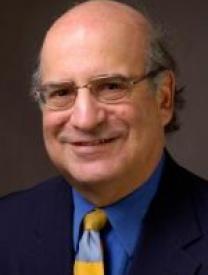by Elizabeth Mitchell Armstrong, PhD, MPA, and Joanna Kempner, PhD
Charles L. Bosk was an influential sociologist whose work on medical education, medical errors and patient safety, the medical profession, bioethics and the ethics of social science research, and social problems was foundational within the field of medical sociology and resonated within clinical medicine, health policy and bioethics. His sociological imagination was dazzling. His contributions span fine-grained, closely observed ethnography and richly reasoned, elegantly argued theory. His wide-ranging influence in sociology, in medicine, and in bioethics was apparent in his appointments as a visiting professor at numerous medical schools, including Johns Hopkins University, and as a fellow at the Hastings Center for Bioethics.
A Baltimore native, Bosk earned his BA at Wesleyan and completed a Ph.D. at the University of Chicago, becoming a leading member of what is sometimes characterized as the “Third School” of Chicago sociology. Bosk was a gifted teacher who made a deep imprint on generations of undergraduate and graduate students at the University of Pennsylvania, where he had taught since 1976, with appointments in Sociology, the Center for Bioethics, and the School of Medicine. He won multiple awards within sociology and was elected to the Institute of Medicine at the National Academy of Sciences in 2013. Bosk had a long-time affiliation with the Robert Wood Johnson Foundation as well, as a core faculty member for the RWJF Clinical Scholars Faculty Program, a member of the Steering Committee for the RWJF Health and Society Scholars Program at Penn, and as a mentor for many graduate students who went on to become RWJF post-docs and scholars. In 2006, he won his own grant through RWJF’s Investigator Awards program to study how best to reduce medical errors. That project became a large multi-sited ethnography funded by the AHRQ. He was awarded a Guggenheim Fellowship in 2018 to continue this work.

University of Pennsylvania
Bosk was one of those rare sociologists who managed to influence medical culture, which in turn, made hospitals safer places to be. He was an astute observer of specialized worlds, with a knack for questioning widely-accepted authoritative knowledge. His first book, Forgive and Remember: Managing Medical Failure (University of Chicago Press, 1st edition 1979; 2nd expanded edition, 2003), provided an ethnographic account of how attending physicians dealt with the inevitable mistakes made by surgeons-in-training. His incisive analysis not only became deeply influential within sociology, but in the medical profession as well. The book has been a bestseller in medical school bookstores since its publication; generations of surgical residents have turned to the book to make sense of their own experiences. His second book, All God’s Mistakes: Genetic Counseling in a Pediatric Hospital (University of Chicago Press, 1992) explored the emerging field of prenatal genetic counseling. Most recently, Bosk was working on how hospitals might improve safety by addressing the culture in which healthcare providers work, rather than relying on technological solutions like checklists. Bosk was an authoritative voice in both academic and policy debates about patient safety and quality improvement, publishing widely within the medical literature and serving on multiple task forces, including at the Agency for Healthcare Research and Quality, the Hastings Center for Bioethics, the American Society for Bioethics and Humanities, and the Children’s Hospital of Philadelphia.
Bosk was a deeply reflective scholar and his own experience with ethnography in ethically fraught medical settings propelled his scholarly attention to the ethics of social science research. He was an invited fellow on the theme of bioethics at the Institute for Advanced Study in Princeton in 2003-2004. He published two books on the ethical complexity of research, The View from Here: Social Science and Bioethics (Blackwell Publishers, 2007), co-edited with Raymond DeVries, Kristina Orfali, and Leigh Turner, and What Would You Do? Juggling Bioethics and Ethnography(University of Chicago Press, 2008).
Bosk is mourned by a wide and deep network of colleagues and former students. A true mensch, he was beloved for his quirky sense of humor and wry wit, his deeply ingrained contranianism, his intellectual generosity, his devotion to his family and to his students, and his wisdom. Bosk is survived by his wife, Marjorie, two daughters, and two grandchildren. Friends and colleagues are invited to share memories or send condolences to his family at poppy.bosk@gmail.com.